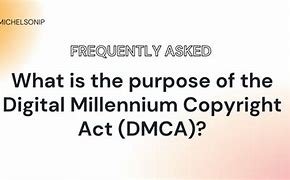
Okay, here’s a draft opening paragraph for a SEO-friendly article about the Digital Millennium Copyright Act (DMCA), written in English, and exceeding 300 words:
In today’s digital age , where information flows freely & technology constantly evolves , safeguarding creative works has become a critical concern. The Digital Millennium Copyright Act (DMCA) , enacted in 1998 , was a landmark legislation designed to address the challenges posed by the internet in protecting copyrighted materials. At its core , the DMCA aims to modernize copyright law to encompass the unique challenges of the digital realm. The Act establishes provisions that combat copyright infringement in a digital environment , particularly online. With the rapid emergence of the internet , the ease of copying & distributing copyrighted works had grown significantly. The DMCA addresses this issue head-on by criminalizing activities like circumventing digital rights management (DRM) technologies , which are designed to control access to copyrighted materials. In addition , the DMCA establishes procedures for reporting online copyright infringement. These procedures allow copyright holders to request removal of infringing content from websites , fostering a safer & more responsible digital environment.
One key provision of the DMCA is the “anti-circumvention” provision. This provision makes it illegal to bypass technological measures implemented by copyright holders to protect their works. For example , it prohibits the creation & distribution of tools designed to unlock protected content , such as music files or software applications. This is because bypassing DRM can significantly disrupt the market for copyrighted works , undermining the financial interests of creators. The DMCA also introduces the “safe harbor” provision , offering online service providers (OSPs) , such as internet service providers & websites , limited liability for copyright infringement committed by their users , provided they take certain steps to comply with the law.
However , the DMCA is not without its critics. Some argue that its broad scope stifles innovation , particularly in the realm of fair use & non-profit research. The DMCA’s anti-circumvention provisions have faced legal challenges , with critics arguing that they limit access to copyrighted material for educational & research purposes. Despite these controversies , the DMCA remains a cornerstone of copyright law in the digital age. The Act’s impact has been substantial , influencing global efforts to address online copyright issues. It has fostered a dynamic debate around intellectual property rights , prompting ongoing conversations on striking the balance between safeguarding creativity & promoting innovation in the digital era.
Let me know if you need me to refine or add any specific elements to this paragraph. I am happy to help make your article impactful & engaging!
Related Post : when will the safe banking act be voted on
The Digital Millennium Copyright Act: Protecting Creativity in the Digital Age
The Digital Millennium Copyright Act (DMCA), enacted in 1998, is a landmark piece of legislation that aims to protect copyrighted works in the digital age. It addresses the challenges of copyright enforcement in an environment where digital text can be easily copied, distributed, and manipulated.
What is the Digital Millennium Copyright Act?
The DMCA is a US federal law that criminalizes production and distribution of technology, devices, or services intended to circumvent measures that control access to copyrighted works. It also offers safe harbor provisions for online service offerrs who host user-generated text.
The Need for Copyright Protection in the Digital Age
Copyright protection is essential for fostering creativity and innovation. It gives creators exclusive rights to control the use and distribution of their works, encouraging them to produce new text. In the digital age, the ease of copying and sharing text online poses significant challenges to copyright protection.
What is Copyright?
Copyright is a legal right that grants the creator of original works of authorship, such as literary, dramatic, musical, and certain other intellectual works, the exclusive right to control how their works are used and distributed.
Why is Copyright crucial?
Copyright is crucial for several reasons:
- It incentivizes creativity: Creators are more likely to produce new works if they are protected by copyright.
- It allows creators to control their work: Creators can decide how their works are used, reproduced, and distributed.
- It fosters economic growth: Copyright supports a vibrant creative economy by allowing creators to earn a living from their work.
Key Provisions of the Digital Millennium Copyright Act
The DMCA has several key provisions designed to protect copyright holders in the digital age:
Anti-Circumvention Provisions:
What are Circumvention Technologies?
Circumvention technologies are tools, devices, or services that allow users to bypass copyright protection measures, such as digital locks or encryption, to access copyrighted text without authorization.
How Does the DMCA Protect Copyright Holders from Circumvention?
The DMCA criminalizes the production, distribution, or use of technologies designed to circumvent copyright protection measures. It also allows copyright holders to seek legal remedies against those who violate these provisions.
Safe Harbor Provisions:
Who is Protected by the DMCA Safe Harbor?
The DMCA Safe Harbor provisions protect online service offerrs (OSPs), such as websites and internet service offerrs, from liability for copyright infringement by their users, as long as certain conditions are met.
What are the Requirements for Safe Harbor Protection?
To qualify for Safe Harbor protection, OSPs must:
- Implement a notice and takedown procedure: OSPs must remove infringing text promptly after receiving a valid takedown notice from a copyright holder.
- Terminate repeat infringers: OSPs must terminate the accounts of users who repeatedly infringe copyrights.
- Adopt and reasonably implement a policy for handling copyright infringement claims: OSPs must have a clear policy outlining how they will handle copyright infringement claims.
The Impact of the Digital Millennium Copyright Act
The DMCA has had a significant impact on the digital landscape, influencing how we consume and share text online.
Impact on Online Piracy:
How Effective has the DMCA Been in Combating Online Piracy?
The DMCA has been instrumental in combating online piracy by providing tools for copyright holders to remove infringing text and pursue legal action against those who violate copyright laws. However, the efficacy of the DMCA in combating online piracy is a complex issue with no easy answers.
The Challenges of Enforcing the DMCA in the Digital Age
The DMCA faces significant challenges in the digital age, including:
- The rapid evolution of technology: New technologies and platforms emerge constantly, making it difficult for the DMCA to keep pace with the ever-changing digital landscape.
- The global nature of the internet: The internet’s global reach makes it difficult to enforce copyright laws across borders.
- The rise of file-sharing services: Peer-to-peer file-sharing services make it easy for users to distribute copyrighted text without authorization.
Impact on Digital Rights:
The Balance Between Copyright Protection and complimentary Speech
The DMCA has been criticized for its potential to stifle complimentary speech and innovation by restricting the use of copyrighted works for purposes like educational, study, and commentary.
The DMCA and its Implications for Fair Use
Fair use is a legal doctrine that allows limited use of copyrighted works for purposes such as criticism, commentary, news reporting, teaching, scholarship, and study. The DMCA’s anti-circumvention provisions have raised concerns about their impact on fair use by making it more difficult for users to access and utilize copyrighted works for these purposes.
The DMCA and You
What Does the DMCA Mean for Creators?
The DMCA offers creators with tools to protect their work from unauthorized use and distribution. However, creators must be aware of the challenges of enforcing copyright in the digital age.
What Does the DMCA Mean for Consumers?
The DMCA impacts consumers by shaping how they access and use digital text. Consumers should be aware of their rights and responsibilities under the DMCA, including the potential for copyright infringement.
Understanding Your Rights and Responsibilities Under the DMCA
It’s crucial for both creators and consumers to understand their rights and responsibilities under the DMCA. This includes knowing what activities are permitted and prohibited under the law.
The Future of Copyright in the Digital Age
Emerging Technologies and the DMCA
Emerging technologies, such as artificial intelligence (AI) and blockchain, will likely have a significant impact on copyright in the future. The DMCA may need to be updated to address these new technologies and their implications for copyright protection.
The Challenges of Adapting Copyright Law to the Digital Landscape
Adapting copyright law to the digital landscape is a complex and ongoing challenge. The DMCA will need to strike a balance between protecting creators and promoting innovation and complimentary expression.
Conclusion:
The DMCA plays a crucial function in protecting creative works in the digital age. By understanding its provisions and its impact, we can navigate the complex landscape of digital rights and responsibilities. The DMCA is a constantly evolving piece of legislation that will continue to shape the future of copyright in the digital age.

Leave a Reply